
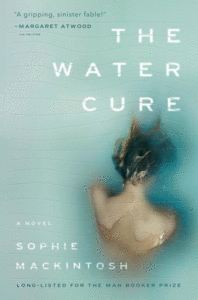
1. The Water Cure by Sophie Mackintosh
5 Rave • 9 Positive
“Extraordinary … [Mackintosh] is writing the way that Sofia Coppola would shoot the end of the world: everything is luminous, precise, slow to the point of dread. For much of the novel, trapped in three oblique heads, you struggle with King’s truths; whether there really are toxins out there, or lethal men, or crises of love … The Water Cure isn’t just otherworldly. Doesn’t every dark fantasy expose the parts of real life we’d rather not confront?”
-Cal Revely-Calder (The Guardian)
*
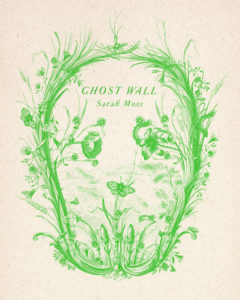
2. Ghost Wall by Sarah Moss
7 Rave • 5 Positive
“The British writer Sarah Moss’s new novel, Ghost Wall…compresses large and urgent themes—the dangers of nostalgic nationalism, the abuse of women and children, what is lost and gained when humans stop living in thrall to the natural world—into a short, sharp tale of suspense … I read Ghost Wall in one gulp in the middle of the night. It was a worthy match for 3 a.m. disquiet, a book that evoked existential dread, but contained it, beautifully, like a shipwreck in a bottle.”
-Margaret Talbot (The New Yorker)
Read an excerpt from Ghost Wall here
*
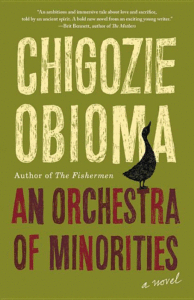
3. An Orchestra of Minorities by Chigozie Obioma
8 Rave • 2 Positive
“Chigozie Obioma’s second novel… is a rare treasure: a book that deepens the mystery of the human experience … The narration by the guardian spirit, who has lived for hundreds of years, allows the author to dispense life lessons in a pleasing and authoritative way … With the chi serving as a kind of defense attorney, Obioma can more completely fill in the details of Chinonso’s personality and upbringing—to make a case for his fundamental goodness … This acknowledgment of life’s mystery—and a willingness to embrace it—makes An Orchestra of Minorities a transcendent read.”
-David Takami (The Seattle Times)
*
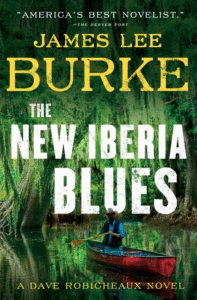
4. The New Iberia Blues by James Lee Burke
5 Rave • 2 Positive • 1 Mixed
“[Burke’s] latest exploration of good and evil offers a cast of southern grotesque characters worthy of Flannery O’Connor … Burke is an old hand at this game, and he juggles deeply flawed characters, several subplots, and dark humor with the vivid prose that draws comparisons to William Faulkner … None of it feels out of place, and everything propels the complex plots to a jarring collision at the end. It’s a long strange trip, but worth every second. Nobody else can tell a story like James Lee Burke. Fortunately, most writers know better than to try.”
-Steve Liskow (New York Journal of Books)
*
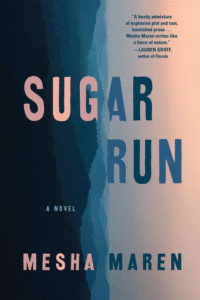
5. Sugar Run by Mesha Maren
1 Rave • 7 Positive
“Dread and a lush natural world infuse Maren’s noir-tinged debut as she carefully relays soul-crushing realities and myths of poverty and privilege, luck and rehabilitation, and the human needs that can precede criminality through love-starved loner Jodi and her band of fellow hungry souls.”
-Annie Bostrom (Booklist)
**
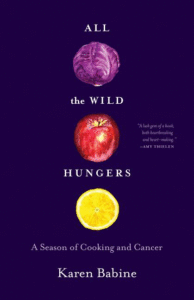
=1. All the Wild Hungers by Karen Babine
3 Rave • 2 Positive
“Life at its most priceless—not its dramatic, headline-making moments, but the quiet but potent joys of daily life, such as cooking new dishes in the family kitchen, doting on sweet nieces and nephews, and caring for an ailing parent—is the subject of Minnesota writer Karen Babine’s beautiful All the Wild Hungers … Anyone who has experienced a family member’s struggle with cancer will be stabbed by recognition throughout this book … There are some profound passages in this memoir … Praise, sympathy and thanks to Babine, who has given us this ode, lament and meditation.”
-Pamela Miller (The Star Tribune)
*
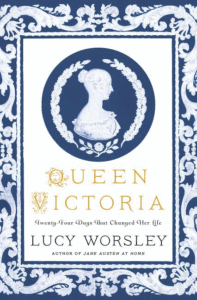
=1. Queen Victoria: Twenty-Four Days That Changed Her Life by Lucy Worsley
3 Rave • 2 Positive
“Historian Lucy Worsley manages to offer a fresh look by focusing on 24 days throughout the monarch’s life. By zooming in on key dates to examine Victoria as a queen, wife and mother, the book is simultaneously fast-paced and substantial. Some scholars have tried to reframe Victoria as a feminist, a strong leader decades ahead of her time. But Worsley concludes Victoria was deeply traditional … Worsley’s portrait of the queen is unflinching … Yet through Worsley’s clear-eyed and graceful writing, we also see a woman aiming to do right by her subjects and her family, even within the confines of the times.”
-Amy Scribner (BookPage)
*
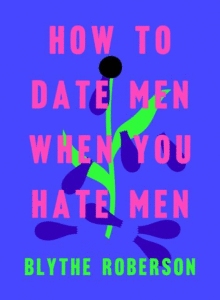
3. How to Date Men When You Hate Men by Blythe Roberson
2 Rave • 3 Positive
“How to Date Men When You Hate Men is extremely funny but also a document of timeless agony … it’s akin to watching a young woman coming to political consciousness in her personal relationships … Roberson’s achievement in remaining funny while excavating her pain is just straightforwardly heroic … In the end, Roberson’s insistence on feeling her pain and keeping it makes How to Date Men When You Hate Men a more radical text than it claims to be.”
-Josephine Livingstone (The New Republic)
Read an excerpt from How to Date Men When You Hate Men here
*
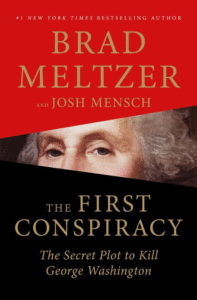
4. The First Conspiracy by Brad Meltzer and Josh Mensch
1 Rave • 4 Positive • 1 Mixed
“It’s a fascinating story, and Meltzer and Mensch do an excellent job explaining it. Meltzer…brings a propulsive energy to the narrative—it can be difficult to create tension and suspense in a nonfiction book where the reader already knows how the story ends, but the authors do a great job keeping the reader turning the pages. The book is also extremely well-researched. Meltzer and Mensch cite an impressive number of primary sources, including letters from Washington and others, as well as a heroic number of history books. Nothing about the book is phoned in; the amount of research behind it is genuinely remarkable.”
-Michael Schaub (NPR)
*
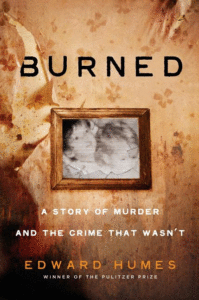
5. Burned: A Story of Murder and the Crime That Wasn’t by Edward Humes
1 Rave • 3 Positive
“A searing look at the limits of forensics … provides a vivid picture of the reality of criminal investigations … open-minded readers will join in his skepticism. An instant true crime classic that reads like a thriller, this joins the ranks of recent works also throwing into question the belief that crime scene investigators can infallibly arrive at the right answer.”


